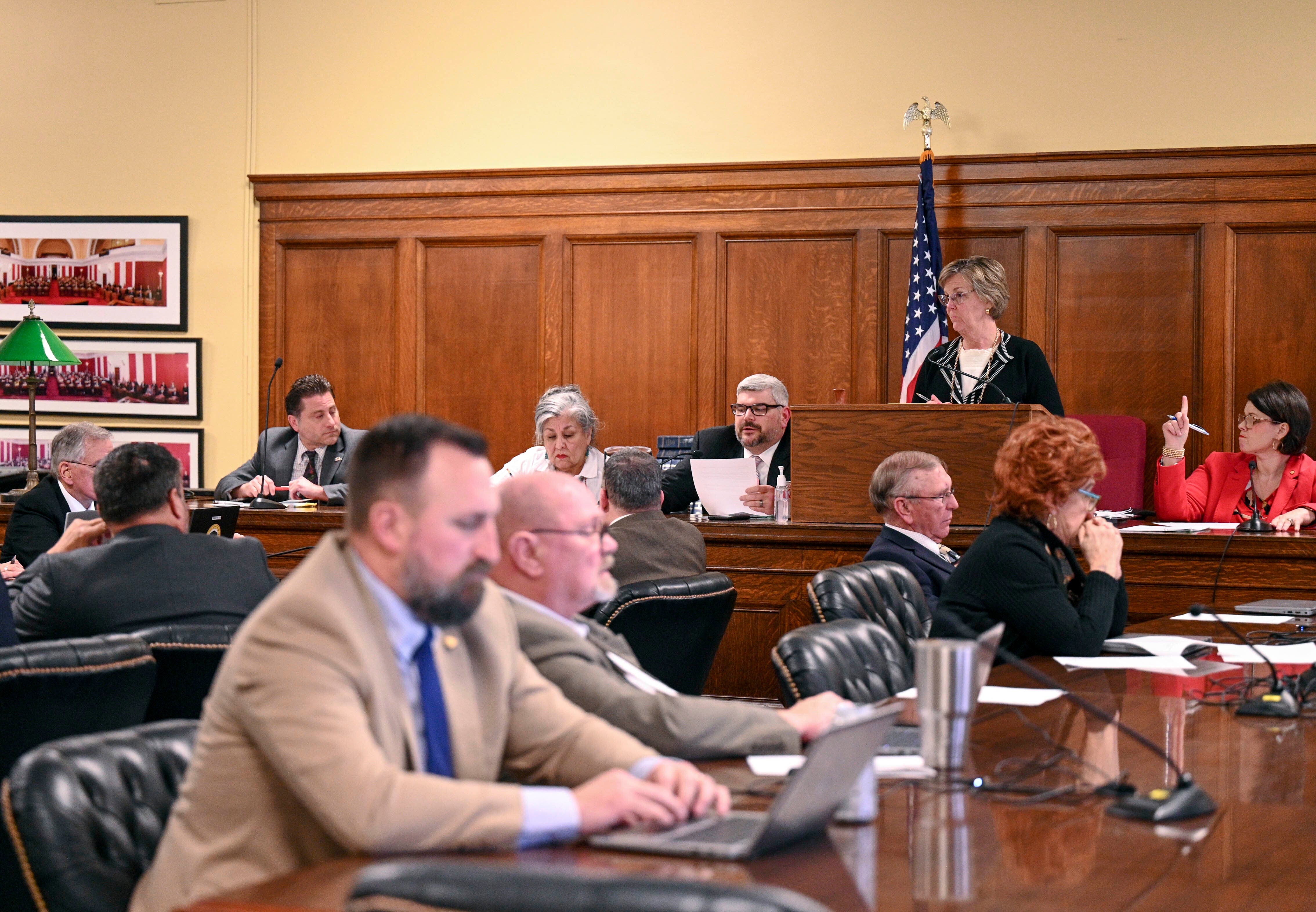West Virginia lawmakers push to remove a suicide risk exemption from gender-affirming care bill
Some Republican lawmakers in West Virginia want to ban transgender youth at risk for self-harm or suicide from accessing medical interventions such as hormone therapy

Some Republican lawmakers in West Virginia want to ban transgender youth at risk for self-harm or suicide from accessing medical interventions such as hormone therapy.
The GOP-controlled Legislature banned such interventions last year while allowing the self-harm and suicide exception. Now, a group of lawmakers want to eliminate that narrow definition, which requires parental consent and a diagnosis of severe gender dysphoria from two medical professionals, both of whom must provide written testimony that medical interventions are necessary to prevent or limit possible or actual self-harm.
Coming up against a major legislative deadline next week, lawmakers in the House Health and Human Resources Committee on Friday rushed to advance a bill to the full chamber that would completely ban interventions like hormone therapy and puberty blockers. Gender-affirming surgery, which physicians testified doesn't occur in the state, was banned last year.
It's unclear what the chances of passage are for the bill. The House of Delegates passed a similar measure last year, but it was significantly altered by Republican Senate Majority Leader Tom Takubo, a physician who expressed concern about the high suicide rate for transgender youth.
The bill's lead sponsor, Republican Del. Geoff Foster, said Friday he thought last year's bill — which he also sponsored — was better, “more clear and concise” without Takubo's changes.
“These are very drastic solutions that aren’t fixing the problem," he said of puberty blockers and hormone therapy, saying what's needed is more treatment for depression. He may not believe in gender-affirming care, he said, but those 18 and older can make their own decisions, not kids.
No one spoke in support of the measure before the vote in House Health, but the committee defeated a motion by Democratic Del. Mike Pushkin to allow youth receiving treatment to continue, even if the interventions are banned for new patients.
No testimony was shared by patients who receive the care or the physicians who treat them. Fairness West Virginia, the state’s only LGBTQ advocacy organization, said a request submitted for a public hearing was denied Friday by Republican House Speaker Roger Hanshaw's office.
“The argument for this bill is that these are irreversible decisions made by minors, but that’s not true," Pushkin said, before the vote. “This type of treatment is reversible — what isn’t reversible is suicide.”
At least 23 states have now enacted laws restricting or banning gender-affirming medical care for transgender minors, and most of those states face lawsuits. Lawmakers in West Virginia and other states advancing bans on transgender health care for youth and young adults often characterize gender-affirming treatments as medically unproven, potentially dangerous and a symptom of “woke” culture.
On Friday, the American Civil Liberties Union of West Virginia said they wouldn't hesitate to take legal action, too.
“If this bill becomes law, we’ll see the state in court,” the organization wrote on the social media site X, formerly known as Twitter.
Isabella Cortez, Gender Policy Manager for Fairness West Virginia, called the vote “abhorrent” and a “last-minute mad dash to eliminate” care that has already been significantly limited.
Every major medical organization, including the American Medical Association, the American Academy of Pediatrics and the American Psychiatric Association, supports gender-affirming care for youths.
Many doctors, mental health specialists and medical groups have argued that treatments for young transgender people are safe and beneficial, though rigorous long-term research is lacking. Federal health officials have described gender-affirming care as crucial to the health and wellbeing of transgender children and adolescents.
Last year, West Virginia University Medicine Pediatrician Dr. Kacie Kidd — one of the only physicians offering this care to minors in the state — said the effects of puberty-blocking medications are reversible, though it’s rare that a patient chooses to reverse treatment.
Kidd, who is medical director of West Virginia University Medicine’s Children’s Gender and Sexual Development Clinic, also said no patients are placed on hormone therapy before they reach puberty. When minors are placed on hormone therapy, it’s a careful decision made in conjunction with the patient and their family members.
She also said she feared the bill would put her patients' lives at risk, noting that the percentage of transgender adolescents considering suicide is around 300% higher than the rate for all West Virginia young people, regardless of gender identity. But interventions like puberty blockers and hormone therapy drastically reduce that risk, she said.
Takubo, a physician, cited more than a dozen peer-reviewed studies showing a decrease in rates of suicide ideation and attempts among youth with severe gender dysphoria who had access to medication therapy.
Gender dysphoria is defined by medical professionals as severe psychological distress experienced by those whose gender identity differs from their sex assigned at birth.
Del. Foster said the bill as it was written last year contained all other exemptions it needed: one for those who are born intersex and another for people taking treatments for infection, injury, disease or disorder that has been “caused by or exacerbated by the performance of gender transition procedures.”
He said that the bill “already took care of any exceptions that were not specifically for the intention of changing one's biological sex to one that was different than that assigned at birth.”
During Friday's meeting, Democratic Del. Anitra Hamilton said there have been plenty of data and studies that carefully considered gender-affirming care and deemed it legitimate.
“I think our ultimate goal is prevention of suicide,” she said.
Subscribe to Independent Premium to bookmark this article
Want to bookmark your favourite articles and stories to read or reference later? Start your Independent Premium subscription today.
